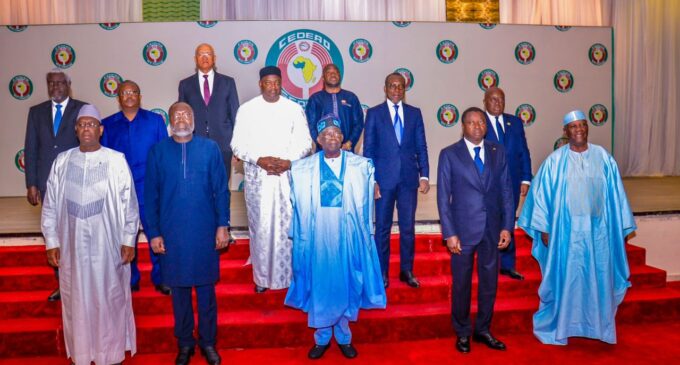In a significant development, the Economic Community of West African States (ECOWAS) has firmly rejected the three-year power transition plan put forth by the military junta of Niger Republic.

The proposal was met with skepticism and concern from the regional body, reflecting the growing urgency for a swift return to civilian rule in the country.
Abdel-Fatau Musah, the ECOWAS commissioner for political affairs, peace, and security, emphasized the organization’s stance in a candid interview with the BBC on Sunday. Musah’s statements resonated with the prevailing sentiment that extended transition periods were no longer acceptable within the West African region.
This pivotal decision from ECOWAS comes in response to a late-night address on Saturday by Abdourahmane Tiani, who has self-declared himself as Niger Republic’s head of state.
The coup leader announced a three-year transition plan aimed at restoring civilian governance. However, he provided no substantive details about the plan, underscoring that the foundational principles for this transition would be delineated over 30 days at a forthcoming dialogue to be convened by the junta.
“Our ambition is not to confiscate power. The transition period will not exceed three years; meanwhile, political parties are urged to submit their vision for the transition within 30 days,” Tiani had said.
Tiani’s declaration was issued following a meeting with a high-level ECOWAS delegation, led by Abdulsalami Abubakar, a former head of state of Nigeria.
In response to Tiani’s proposal, Musah’s stance was unequivocal. He stated that ECOWAS could no longer tolerate protracted transition periods in the region. “Ecowas is not accepting any prolonged transition again in the region. They have to get ready to hand over in the shortest possible time,” he asserted.
“The earlier they give power back to civilians and concentrate on their primary responsibility defending the territorial integrity of Niger, the better for them.”
Musah further highlighted the importance of prioritizing civilian rule and defending Niger’s territorial integrity.
With tensions palpable, the junta head had previously expressed that Niger had no desire for hostilities but affirmed the nation’s readiness to defend itself against any external intervention, should the need arise.
As the West African region closely watches these unfolding developments, ECOWAS’ decisive rejection of the proposed transition plan stands as a pivotal moment in advocating for swift and responsible governance in the Niger Republic.
The junta’s commitment to the outlined transition principles will be closely scrutinized in the coming weeks as the nation navigates a delicate path toward its return to civilian rule.





Comments are closed.